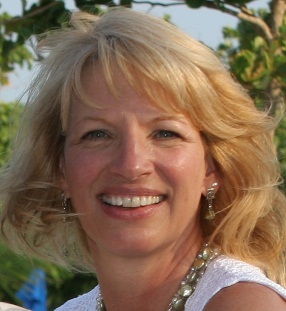
Inside Story: The Life of a Sleep Coach
Sleep doesn’t necessarily come without its problems.
In our increasingly fast-paced lives, sleep deprivation and insomnia are a fact of life for many people. When you also consider the prevalence of conditions such as Sleep Apnoea and the 40% of us that suffer to some extent from snoring, it’s no wonder that some people are turning to Sleep Coaches for help. But what does a Sleep Coach actually do and how can they help?
Patty Tucker is a graduate of the Stanford School of Medicine Physician Assistant Program. She has been a medical practitioner for over two decades with extensive experience in primary care, emergency medicine and surgery. Since 2001 she has specialized in sleep medicine and is now a hugely experienced Sleep Coach and Consultant.
Working with patients at an Academy of Sleep Medicine accredited Sleep Disorders Centre; she has helped thousands of patients find their way to restful sleep and renewed health. Passionate about the need for and benefits to be gained from healthy sleep, she now offers her expertise and gentle guidance to clients outside the medical arena.
We were lucky enough to catch up with Patty, who very kindly agreed to answer all of our questions.
You’ve been working in Sleep Medicine for nearly 15 years now. How and why did you first become interested in Sleep?
I've been practicing Medicine for over 25 years now and I did not pay enough attention to how important sleep was to overall health and vitality for the first 10 years! It was not until I began working with Dr's. Rafael Pelayo and William C Dement (both of the Stanford Centre for Sleep Sciences and Medicine and authors of Sleep and Dreams) that I learned the universal need, and indeed challenge, that sleep can represent.
What exactly is a Sleep Coach and how can they help?
A Sleep Coach is someone who understands sleep, health, human nature and the realities of real life and can help an individual find personal ways to balance them all. Sleep is incredibly personal and intimate. Sleep problems are unique to each individual and they do not exist in a vacuum.
A sleep problem may be the result of some long held habit or pattern. It can be an environmental issue. It may be a reflection of personal or cultural beliefs. It may be caused by a medical condition and it may be causing other medical conditions. It can influence personal relationships and colour professional interactions.
A Sleep Coach is your partner in peeling back the onion layers in order to discover the basis of your sleep issues. A Sleep Coach will guide you in finding new ways to achieve a peaceful, restorative slumber.
Can you tell us a little about the most common and the most rare sleep disorders that you come across in your work?
Insomnia (the inability to fall asleep, stay asleepor be restored by sleep)is the most common sleep disorder affecting nearly 50% of adults in Western societies each year.
Sleep Apnoea may be the most common sleep disorder that has direct connections with the very serious medical conditions of heart disease, obesity and diabetes.
Narcolepsy is a very strange affliction causing its sufferers to fall unexpectedly into a state of sleep during waking activities. It is not as uncommon as one would think and is often not diagnosed until the person has had symptoms for many decades.
Is there a particular age group or sex that seems to be more affected by sleep disorders than others, in your experience?
Every age group has its own set of sleep challenges. Teenagers are night owls forced to live in a daytime world (see our previous blog post for more info on night owls and morning larks). New parents and young entrepreneurs are victims of sleep deprivation from outside sources. Older adults have accumulated more medical conditions and take more medications that can interfere with sleep. The landscape for peaceful sleep is ever-changing...
What one piece of advice would you give to our readers regarding achieving healthy sleep?
Make sleep a priority - not the thing to do when everything else is done, but something to schedule and pay attention to. Give it as much importance as all the other things on the day's list.
We firmly believe that having a good quality mattress has a big part to play in aiding restful sleep. Do you have any advice on what to look for in a good mattress?
Absolutely! The perfect mattress is one that feels comfortable, is inviting and supportive, and allows you to wake up rested. That may be different for each individual. I tell people to consider their cars... They may spend a few hours in them each week and they spend a tremendous amount on them each year. A mattress is a place you will spend one third of your life. It should be an important, thoughtful decision and is worthy of a good investment.
We couldn’t agree more. Dormeo has been bringing the highest quality Italian-made memory foam mattresses direct to people’s homes for the last 10 years and we believe that everybody should sleep on the very best mattress they can afford. Whether that is from our luxury Octaspring range (with 8x better breathability than traditional memory foam) or from our best-selling Dormeo Memory range, Dormeo mattresses are made for every body, every bedroom, and every budget.
Many thanks to Patty Tucker for answering all our Sleep Coach related questions.








Leave a Reply